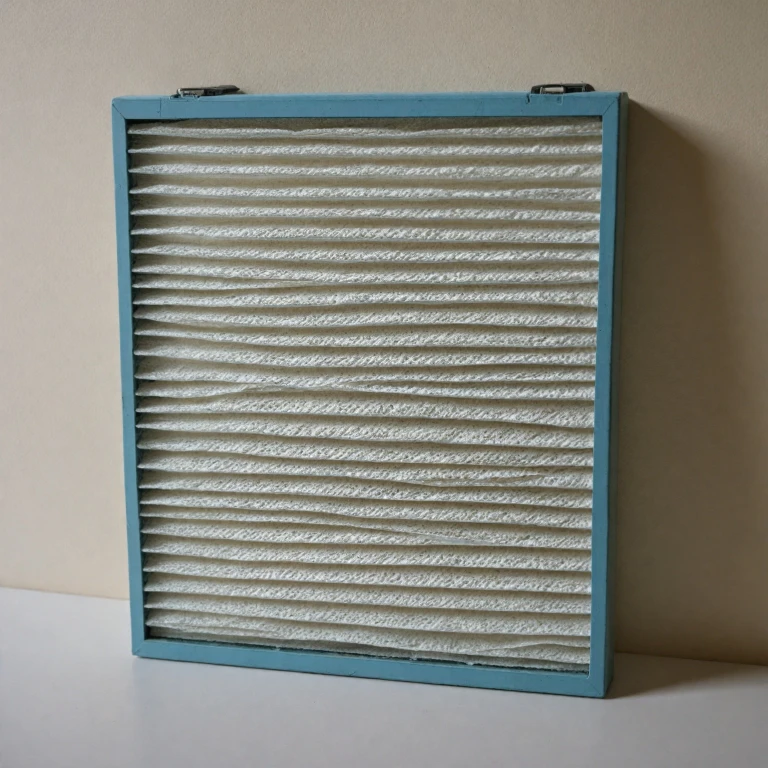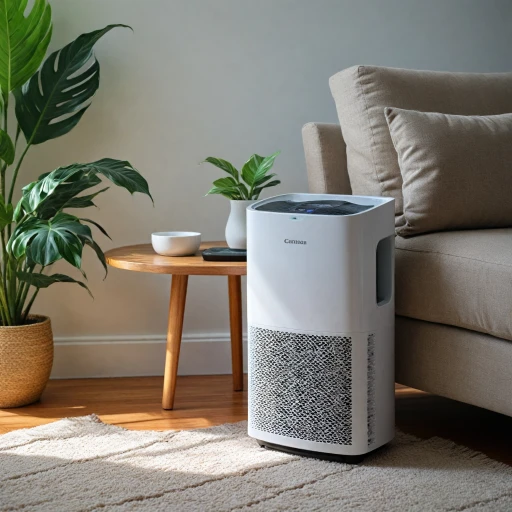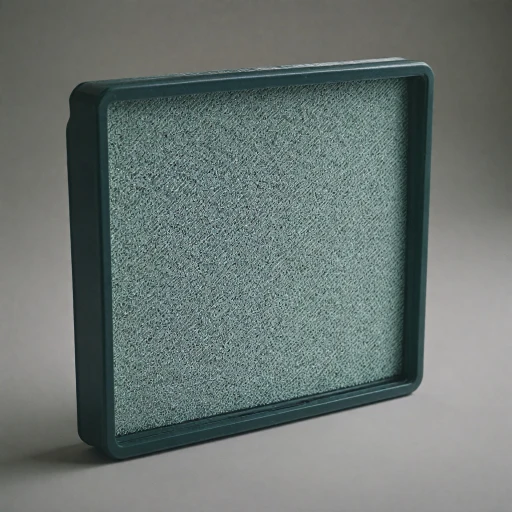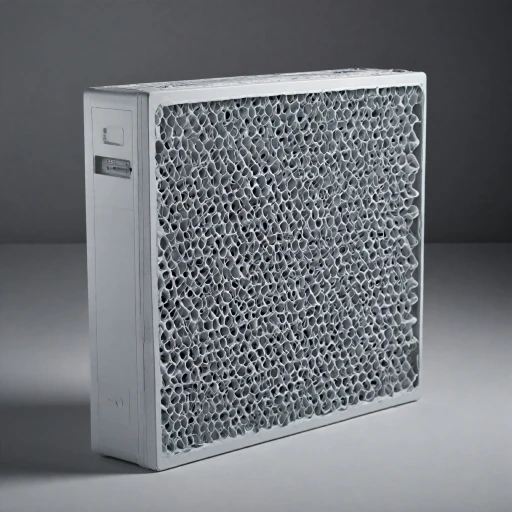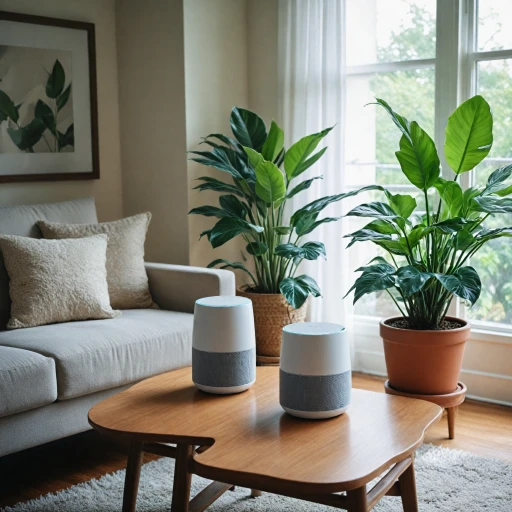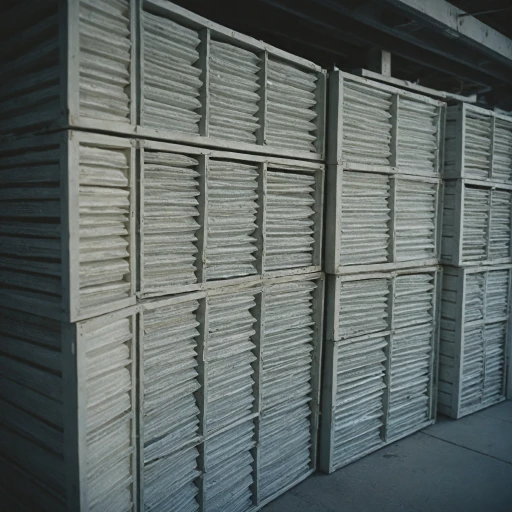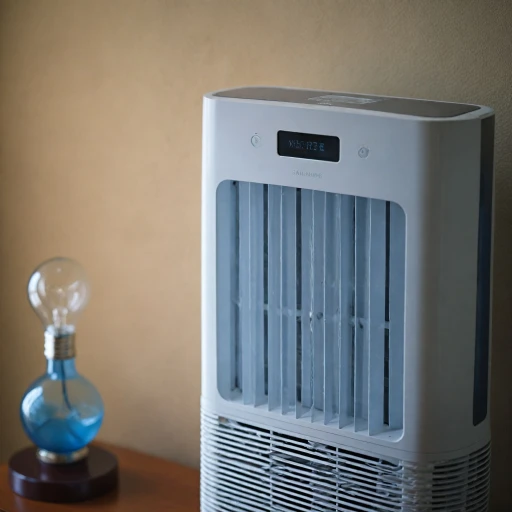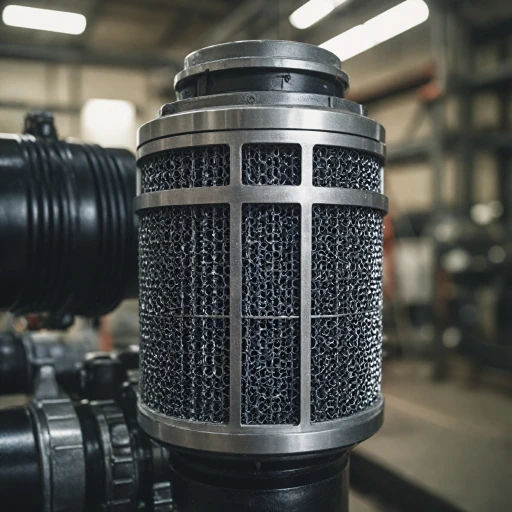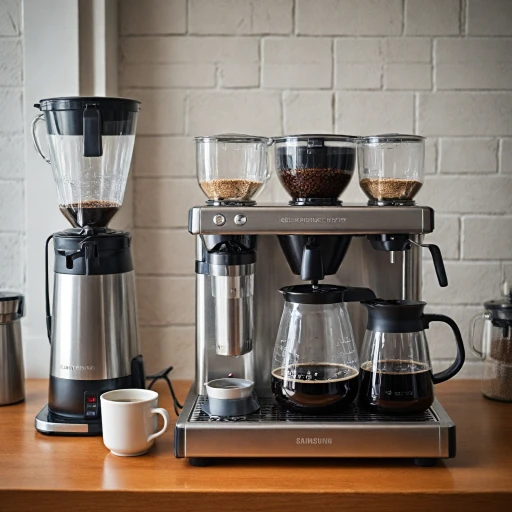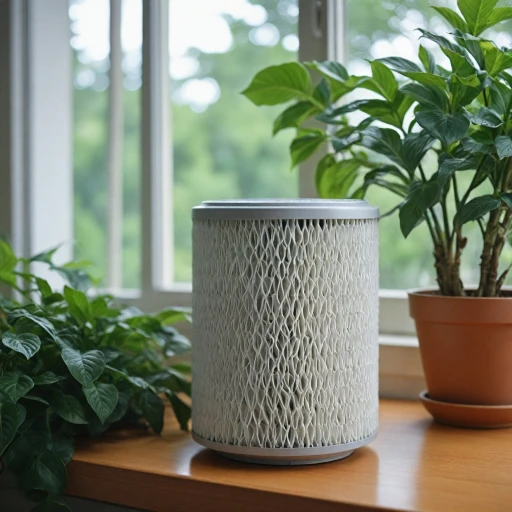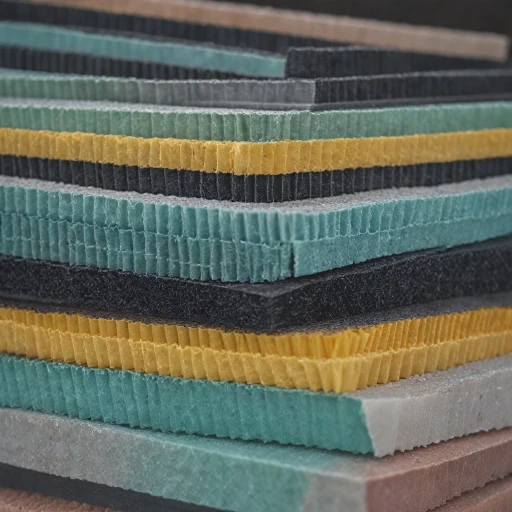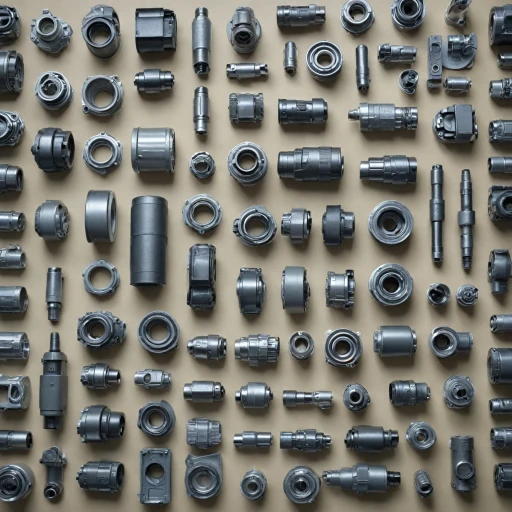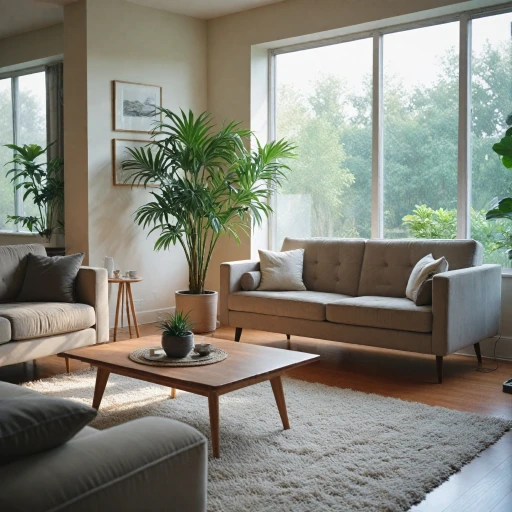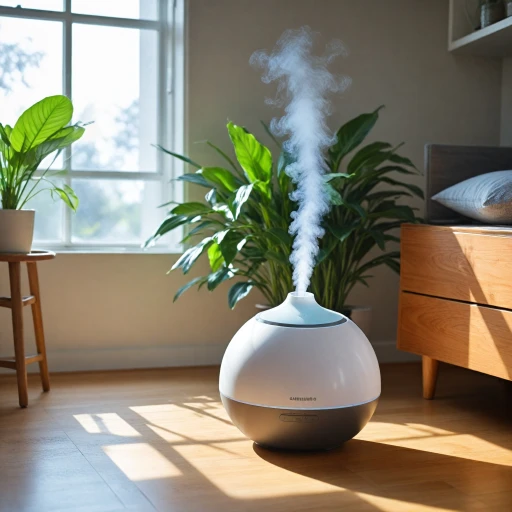
The Role of Air Filters in Purifiers
The Crucial Function of Air Filters
Air filters play a pivotal role in the functioning of air purifiers. These essential components are the first line of defense against airborne contaminants, working tirelessly to enhance air quality. A good air filter efficiently traps dust, allergens, and other particles, thus improving the overall air cleaning process in your HVAC system. The pleated air filter, often mentioned for its high efficiency in capturing fine particles, utilizes advanced technologies to combat household pollutants. Compared to traditional fiberglass options, pleated filters demonstrate superior performance, making them a popular choice for bulk air filters due to their efficiency and cost-effectiveness.Understanding MERV Ratings
The Minimum Efficiency Reporting Value (MERV) rating is a critical factor to consider when evaluating the effectiveness of air filters. A high MERV rating reflects the filter's ability to capture smaller particles, which is essential for individuals concerned about allergens and maintaining a high air quality at home. Honeywell ultra efficiency filters, known for their excellent performance, often boast higher MERV ratings and are specifically recommended for homes aiming to reduce allergen exposure. For your furnace air system, choosing the right air filter based on the MERV rating will save you from potential issues related to air efficiency and cost over time. Verified filter packs ensure you are getting high-quality products that can be trusted to work effectively in your system. Concluding this part of the discussion, it's evident that the function and efficiency of air filters hinge not just on technology but on choosing the appropriate type for your specific needs. The upcoming sections will delve deeper into why size matters, as well as maintenance tips to optimize your filter's longevity.Why Size Matters: The 14x20x1 Air Filter
The Importance of Proper Air Filter Dimensions
When it comes to selecting an air filter for your home, ensuring the right size is crucial. Among the different dimensions, the 14x20x1 air filter stands out due to its common use in residential HVAC systems. Proper sizing directly impacts an air filter's efficiency and effectiveness in capturing dust and allergens.
Incorrectly sized filters can compromise air cleaning and increase energy consumption. An undersized filter can allow unfiltered air to bypass the filter, reducing indoor air quality. Conversely, an oversized filter can cause installation difficulties and may not fit securely into the system, leading to similar issues. This is where the standard 14x20x1 dimension proves beneficial for systems that require this specific size.
Moreover, the size affects how often a filter needs replacement, influencing maintenance schedules and costs. A properly fitting filter will perform more efficiently over time, saving you from frequent replacements and preserving your furnace air system's longevity. A well-chosen filter can also enhance air quality by effectively capturing allergens and pollutants.
For instance, the Honeywell high efficiency allergen air filters are optimized for various sizes, including the 14x20x1, which ensures compatibility with your HVAC services. Matching the filter's MERV rating with your air system's capacity is equally important, as a higher MERV rating indicates greater filtration strength. Hence, always verify your system's requirements before investing in a filter pack to achieve optimal air quality improvements.
In essence, selecting the correct filter dimensions not only aids in maintaining ideal air quality but can also lead to savings both on energy bills and maintenance efforts. For more insights on choosing the right air filter components for your home systems, consider visiting a specialized resource on air filter essentials like Kenmore vacuum parts.
Materials and Technologies in Air Filters
Exploring the Materials and Technologies Behind Air Filters
When choosing an air filter, understanding the materials and technologies used is crucial for optimal air cleaning. A variety of materials dominate the market, each with distinct benefits and efficiency levels.
Fiberglass Filters: Typically the most affordable option, fiberglass filters excel at capturing large particles, like dust and lint. However, they are relatively less efficient at filtering smaller particulates and allergens, making them suitable for basic filtration needs.
Pleated Filters: Designed with folds or pleats to increase surface area, pleated air filters provide better efficiency than their fiberglass counterparts. They capture a broader range of particles, including pollen and mold spores, making them popular for residential use.
High-Efficiency Filters: With a merv rating indicating their ability to trap small pollutants, high efficiency units like those seen in honeywell ultra efficiency models strike an ideal balance for homes requiring rigorous filtration. These often rely on synthetic materials that deliver superior allergen control.
Advanced technologies enhance performance.
- Electrostatic Filters: Use charged fibers to attract particles, boosting filtering capability without compromising airflow.
- HEPA Filters: High-Efficiency Particulate Air filters meet strict standards for capturing tiny particles, including those as small as 0.3 microns, like viruses and soot. They are unrivaled in allergen merv efficiency.
Besides material, technology does influence filter price and effectiveness. While products like honeywell high efficiency models might carry a higher initial cost, they are likely to save on costs related to health and HVAC maintenance in the long run.
Maintenance Tips for Air Filters
Keeping Your Air Filters in Top Shape
Maintaining the performance of your air filters is crucial for ensuring that your purifier operates at its best. Regular upkeep can increase the lifespan of your filter and improve air quality in your home. Here are some maintenance tips to consider:- Regular Inspection: Ensure you routinely check your air filter to assess its condition. Look out for visible dust accumulation or any form of clogging.
- Scheduled Replacement: How often you replace your filter depends on factors like its MERV rating, the materials (pleated or fiberglass), and the specific demands of your HVAC system. It's important to follow the manufacturer's guidelines for replacement intervals.
- Proper Installation: Ensure your air filter is correctly installed to prevent air bypass, which can undermine the efficiency allergen trapping capability of your system.
- Cleaning Surrounding Areas: Dust and allergens tend to accumulate around the area where the filter is located. By cleaning these areas, you can enhance the overall performance of your air filter.
Common Challenges with Air Filters
Troubleshooting and Overcoming Air Filter Issues
Navigating the common challenges associated with air filters is crucial for maintaining the optimal performance of air purifiers. Let's delve into some frequent issues and how to address them to ensure efficiency.- Clogging and Reduced Airflow: One of the primary challenges with filters, especially pleated air filters, is clogging, which can significantly reduce airflow in your HVAC system. This accumulation of dust and allergens can impede the filter's capability to maintain high air quality. To counter this, regularly replacing your filter pack is recommended, aligning with the filter's MERV rating.
- Allergen Sensitivity: Even with a verified filter with high efficiency allergen capabilities, some users might still face allergen sensitivity. It's pivotal to ensure that the filter's MERV rating aligns with your specific needs, particularly if the household deals with ultra-sensitive allergens. Opting for a Honeywell ultra or similar high efficiency models may enhance allergen management.
- Cost Considerations: Price can be a consideration, and while opting for budget-friendly options like fiberglass filters might seem savvy, their efficiency may not match pleated or Honeywell high-efficiency alternatives. Balancing cost with the need to maintain allergen merv performance is essential.
- Compatibility with HVAC and Furnaces: Another challenge is ensuring the filter fits seamlessly with your existing furnace air systems. Using correct dimensions, like a 14x20x1 air filter, prevents efficiency loss due to air leakage. Checking compatibility manuals and manufacturer guidance (MPN save services) ensures perfect fitment and efficient function.
- Longevity and Maintenance: Regular maintenance is vital to prolonging filter life and efficiency. It involves not just routine replacement, but also occasional system servicing to preserve optimal air cleaning conditions. Seeking professional services when high-efficiency issues persist can save long-term costs and trouble.
Choosing the Right Air Filter for Your Needs
Making the Right Choice: Tailoring Air Filters to Your Needs
When selecting an air filter, various factors come into play, including efficiency, types of filters, and MERV ratings. Understanding these elements will ensure your air purifier performs optimally and maintains indoor air quality.
- Efficiency Considerations: Look for filters with high efficiency allergen MERV ratings. These provide superior air cleaning performance, capturing fine dust and airborne particles that may exacerbate allergies. A higher MERV rating means the filter can capture smaller particles, making it ideal for those with sensitivity to allergens.
- Selecting from Fiberglass and Pleated Options: Filters come in different materials, such as fiberglass and pleated air filters. Pleated filters often offer higher efficiency, due to the increased surface area which allows them to capture more particles and improve air cleaning.
- Balancing Cost and Performance: Price can be a determining factor, with options like the Honeywell ultra efficiency models available for those seeking enhanced performance. While higher quality filters might come at a premium, their ability to save on maintenance costs for your HVAC system makes them a worthwhile investment.
Consider using filter packs to ensure you always have a replacement on hand. Some pack MPN options include verified Honeywell high efficiency models that are designed to save money over time by extending the life of your HVAC system. Make sure to check online reviews and services to find the best filter for your budget and needs.

